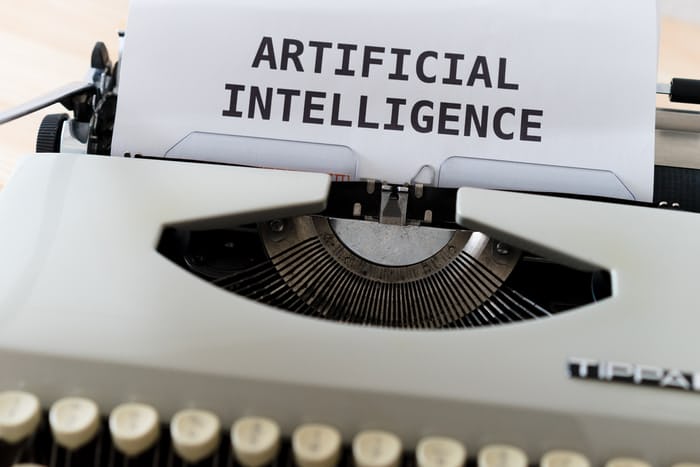Looking for skills to become a Mechanical Engineer?
Your search ends here!
In this article, we take a look at the top 15 technical skills to become a mechanical engineer along with 5 soft skills that will help you perform well in your role.
Let's dive in!
15 Technical Skills to become a mechanical engineer
Here are 15 technical skills you need to develop to become a mechanical engineer:
1. Engineering Design (CAD - Computer-Aided Design)
- Design and Visualization
CAD software, such as AutoCAD and SolidWorks, is fundamental to mechanical engineering because it allows engineers to create detailed 2D and 3D models of mechanical components and systems.
This skill is essential for visualizing and conceptualizing designs before physical prototypes are built. - Precision and Accuracy
Mechanical engineers need to create designs with precise measurements and tolerances to ensure that components fit and function correctly.
CAD software enables engineers to design with high accuracy, reducing the risk of errors during the manufacturing process. - Iterative Design
CAD tools support iterative design processes, where engineers can quickly modify and improve designs based on analysis results or changing requirements.
This agility is vital for optimizing designs for performance and cost efficiency. - Communication
CAD models and drawings are also crucial for effective communication with colleagues, manufacturers, and clients.
Engineers use CAD to convey design intent and specifications, making it an essential tool for collaboration.
2. Thermodynamics
- Energy Conversion
Understanding the principles of thermodynamics is fundamental for mechanical engineers, especially when dealing with engines, power plants, and HVAC systems.
These systems involve energy conversion, and a solid grasp of thermodynamics helps optimize efficiency. - Heat Transfer
Thermodynamics plays a crucial role in heat transfer analysis, which is vital for designing heat exchangers, radiators, and thermal insulation systems.
Engineers need to know how heat is transferred through conduction, convection, and radiation to ensure efficient thermal management. - Fluid Flow
Many mechanical systems involve the movement of fluids, and thermodynamics helps engineers analyze and optimize fluid flow, whether it's in pipes, turbines, or pumps.
Understanding concepts like Bernoulli's principle is essential for designing efficient fluid systems.
3. Mechanical Analysis (FEA and CFD)
- Stress and Strain Analysis
Mechanical analysis skills are indispensable for evaluating the structural integrity of components and systems.
Finite Element Analysis (FEA) enables engineers to simulate and analyze stress and strain distributions, ensuring that designs can withstand loads and forces without failure. - Vibration Analysis
FEA can also be used to analyze mechanical vibrations, which is critical for designing components like suspension systems in vehicles and ensuring they perform reliably. - Fluid Flow Simulation
Computational Fluid Dynamics (CFD) is essential for understanding how fluids behave within mechanical systems, such as airflow in HVAC systems or the aerodynamics of vehicles.
This knowledge is crucial for optimizing system performance and efficiency. - Failure Prediction
Mechanical analysis tools like FEA and CFD help predict potential failures and weaknesses in designs, allowing engineers to make necessary adjustments and avoid costly errors in the manufacturing phase.
4. Material Science
As a mechanical engineer, you will often be tasked with choosing the most appropriate materials for a given application. Material science knowledge helps you select materials based on factors like strength, durability, corrosion resistance, and thermal properties.
- Performance Optimization: Understanding material properties allows you to optimize the performance and reliability of mechanical systems. For example, selecting a high-strength material for a load-bearing component ensures it can withstand mechanical stresses.
- Failure Analysis: In the event of a component failure, knowledge of material science helps you conduct root cause analysis by examining how materials behave under specific conditions, enabling you to make design improvements and prevent future failures.
5. Manufacturing Processes
- Design for Manufacturability: Knowing various manufacturing processes such as machining, welding, casting, and 3D printing helps you design parts and systems that are easier and cost-effective to produce.
- Quality Control: Familiarity with manufacturing processes allows you to establish quality control measures to ensure that components meet design specifications and industry standards.
- Cost Efficiency: Understanding manufacturing processes helps you make informed decisions about the most cost-efficient methods for producing mechanical components, which is essential for project budgets and timelines.
6. Mechanical Testing
- Quality Assurance: Mechanical testing skills enable you to verify the quality and reliability of components through tests like tensile testing, impact testing, and hardness testing.
- Material Behavior: You can assess how materials behave under different loads, temperatures, and environmental conditions, ensuring that materials meet performance requirements.
- Data-Driven Design: Mechanical testing generates data that you can use to validate your design assumptions and make necessary adjustments. For example, if a component doesn't meet the required strength specifications, you can modify the design accordingly.
7. Machine Design
- Relevance to Mechanical Engineering: Machine design is at the core of mechanical engineering. It involves the creation of machines and mechanical systems that perform specific functions efficiently and reliably. This skill is essential for designing anything from simple components to complex industrial machinery.
- Application: Mechanical engineers frequently work on projects that involve the development of new machines or the improvement of existing ones. They must ensure that these machines are designed to meet performance, safety, and reliability criteria while considering factors like material selection, stress analysis, and manufacturing processes.
- Importance: Proficiency in machine design enables mechanical engineers to contribute to various industries, such as automotive, aerospace, manufacturing, and robotics. It ensures that products and systems are not only functional but also meet industry standards and regulatory requirements.
8. CAD/CAM (Computer-Aided Manufacturing)
- Relevance to Mechanical Engineering: CAD/CAM technology plays a vital role in the design and manufacturing processes within mechanical engineering. CAD software is used for designing and modeling, while CAM software is employed for generating toolpaths and control data for CNC machines.
- Application: Mechanical engineers use CAD software to create detailed 2D and 3D models of mechanical components and systems. CAM software helps generate machining instructions for CNC machines, ensuring precision and accuracy in manufacturing.
- Importance: CAD/CAM proficiency enhances productivity and precision in designing and manufacturing processes.
It allows engineers to visualize and analyze designs, detect errors before production, and optimize manufacturing processes.
The integration of CAD/CAM is crucial for efficient and cost-effective production in industries like automotive, aerospace, and precision machining.
9. Fluid Mechanics
- Relevance to Mechanical Engineering: Fluid mechanics is the study of how fluids (liquids and gases) behave and interact with forces. It is essential in the design and analysis of fluid systems, such as pipelines, pumps, and heat exchangers.
- Application: Mechanical engineers use fluid mechanics principles to design and analyze systems that involve the movement of fluids. This includes optimizing the flow of air and liquids in HVAC systems, designing efficient hydraulic systems, and ensuring proper fluid cooling in engines and industrial processes.
- Importance: Proficiency in fluid mechanics is crucial for ensuring the efficient and safe operation of mechanical systems. It helps engineers calculate pressure drops, flow rates, and heat transfer, leading to the design of systems that meet performance requirements while minimizing energy consumption and waste. In industries like aerospace, energy, and manufacturing, understanding fluid behavior is paramount for success.
10. Heat Transfer
Heat transfer is the study of how heat is exchanged between objects and their surroundings. Mechanical engineers need expertise in heat transfer for several reasons:
- Efficient Thermal Design
Understanding heat transfer mechanisms (conduction, convection, and radiation) is essential for designing systems that efficiently transfer or dissipate heat. This is critical in applications like HVAC systems, electronics cooling, and engine design. - Energy Efficiency
Heat transfer knowledge helps engineers optimize energy use and reduce energy losses in heating, ventilation, and air conditioning (HVAC) systems, as well as in industrial processes. - Materials Selection
Heat transfer properties influence the selection of materials for various applications. Engineers must choose materials that can withstand high temperatures or insulate against heat as needed.
11. Structural Analysis
Structural analysis involves assessing the behavior of mechanical components and structures under various loads and conditions. This skill is vital for mechanical engineers for several reasons:
- Safety and Reliability
Mechanical engineers must ensure that structures and components can withstand the stresses and loads they will encounter during operation, ensuring safety and reliability.
For example, in civil engineering, bridges, and buildings must be structurally sound. - Optimization
Engineers use structural analysis to optimize designs by identifying weak points, optimizing materials, and reducing excess weight.
This is crucial in industries like automotive and aerospace for fuel efficiency and performance. - Failure Prevention
Understanding structural behavior helps engineers predict and prevent failures, which is critical in applications such as structural engineering, where catastrophic failures can have severe consequences.
12. Instrumentation and Control:
- Automation and Control Systems
Mechanical engineers often work with systems that require automation and precise control, such as manufacturing processes, robotics, and HVAC systems.
Proficiency in instrumentation and control allows engineers to design, implement, and optimize these systems effectively. - Quality Assurance
Instrumentation skills are vital for ensuring product quality and consistency. Engineers use sensors and control systems to monitor and maintain desired parameters during manufacturing and testing processes. - Troubleshooting
When issues arise in mechanical systems, having expertise in instrumentation and control helps engineers diagnose problems and implement corrective measures efficiently.
13. Project Management:
- Efficient Resource Allocation
Mechanical engineers frequently lead or participate in engineering projects. Project management skills are essential for allocating resources, including manpower, time, and budget, effectively. - Timeline Adherence
Successful project management ensures that engineering projects are completed on schedule, minimizing delays and associated costs. - Risk Assessment
Engineers with project management skills can identify potential risks, develop mitigation strategies, and ensure that projects stay on track.
14. Technical Writing
Clear and comprehensive documentation is essential in engineering. Mechanical engineers must create technical reports, design specifications, engineering drawings, and manuals.
Proficient technical writing ensures that design intent and critical information are conveyed accurately.
Engineers often collaborate with multidisciplinary teams, clients, and stakeholders.
Effective technical writing skills facilitate communication and ensure that everyone involved understands project details and requirements.
In industries subject to regulations and standards, accurate documentation is crucial for compliance and liability protection.
5 Soft Skills For Mechanical Engineers
Here are the top 5 soft skills you need to become a mechanical engineer:
1. Problem-Solving
Problem-solving is at the core of mechanical engineering. Engineers often encounter complex technical challenges, whether it's optimizing a design, resolving a production issue, or improving efficiency.
Strong problem-solving skills are essential for identifying these challenges, breaking them down into manageable components, and developing effective solutions.
This skill enables mechanical engineers to innovate, improve processes, and troubleshoot issues in various engineering contexts.
2. Critical Thinking
Critical thinking is closely linked to problem-solving but goes beyond it. Mechanical engineers need to evaluate information, data, and design concepts critically.
They must assess the feasibility and practicality of proposed solutions, consider potential risks, and make informed decisions.
Critical thinking helps engineers analyze problems from different angles and ensure that the chosen solutions are not only effective but also safe and economically viable.
3. Communication
Effective communication skills are crucial for mechanical engineers to collaborate with colleagues, convey ideas, and interact with clients or stakeholders.
Engineers often work in multidisciplinary teams, and the ability to explain complex technical concepts clearly and concisely is vital.
Whether it is presenting a design proposal, discussing project progress, or providing instructions to manufacturing teams, strong communication skills foster efficient teamwork and prevent misunderstandings that can lead to errors.
4. Teamwork
Mechanical engineering projects typically involve collaboration with professionals from various disciplines, including electrical engineers, materials scientists, and project managers.
The ability to work effectively as part of a team is essential for achieving project goals. Teamwork encompasses active listening, respecting diverse perspectives, sharing knowledge, and contributing to collective decision-making.
Collaboration ensures that different aspects of a project come together seamlessly and that the final product meets all requirements.
5. Adaptability
Adaptability is critical in a field where technology and best practices constantly evolve.
Mechanical engineers need to stay current with the latest advancements in materials, manufacturing methods, and design software.
Being open to learning and adapting to new technologies and processes enables engineers to remain competitive and relevant in their careers.
Additionally, adaptability helps engineers respond to unexpected challenges and changes in project scope, ensuring that they can adjust their approach as needed to meet project objectives.
8 Crucial Certifications to Become a Mechanical Engineer
- Simulation Analysis for Mechanical Engineers with Autodesk Fusion 360
- Autodesk CAD/CAM/CAE for Mechanical Engineering Specialization
- Professional Graduate Programme - Mechanical Engineering
- Master of Engineering in Mechanical Engineering
- Python for Mechanical Engineers
- Introduction to Mechanical Engineering Design and Manufacturing with Fusion 360
- MATLAB for Mechanical Engineers
- Modeling and Design for Mechanical Engineers with Autodesk Fusion 360
FAQs
What is the role of CAD software in mechanical engineering, and why is it important?
CAD (Computer-Aided Design) software is essential in mechanical engineering for designing and visualizing mechanical components and systems.
It allows engineers to create detailed 2D and 3D models, ensuring precision and accuracy in design.
CAD also supports iterative design processes, facilitating modifications and improvements based on analysis results or changing requirements.
Furthermore, CAD models and drawings are crucial for effective communication with colleagues, manufacturers, and clients, enhancing collaboration and reducing the risk of errors.
How does knowledge of thermodynamics benefit mechanical engineers?
Thermodynamics plays a crucial role in mechanical engineering, especially when dealing with engines, power plants, and HVAC (Heating, Ventilation, and Air Conditioning) systems.
Understanding thermodynamics principles enables engineers to optimize energy conversion, improve efficiency, and manage heat transfer efficiently.
Whether it's designing more efficient engines, HVAC systems, or heat exchangers, a solid grasp of thermodynamics is vital for achieving performance and energy efficiency goals.
Why is structural analysis important for mechanical engineers?
Structural analysis involves assessing the behavior of mechanical components and structures under various loads and conditions.
This skill is essential for mechanical engineers to ensure the safety and reliability of designs. It helps engineers identify weak points, optimize materials, and prevent failures.
Whether working on civil engineering projects, automotive designs, or aerospace applications, structural analysis is critical for ensuring that components and structures can withstand mechanical stresses and environmental factors.
What is the significance of instrumentation and control skills in mechanical engineering?
Instrumentation and control skills are crucial for mechanical engineers working on projects that require automation and precise control.
This includes applications like manufacturing processes, robotics, and HVAC systems. Proficiency in instrumentation and control allows engineers to design, implement, and optimize these systems effectively.
It also supports quality assurance by monitoring and maintaining desired parameters during manufacturing and testing processes.
Why is adaptability considered a vital soft skill for mechanical engineers?
Adaptability is essential in mechanical engineering because technology and best practices constantly evolve.
Mechanical engineers need to stay current with the latest advancements in materials, manufacturing methods, and design software to remain competitive and relevant in their careers.
Additionally, adaptability helps engineers respond effectively to unexpected challenges and changes in project scope, ensuring that they can adjust their approach as needed to meet project objectives.
It fosters a mindset of continuous learning and improvement, which is invaluable in a dynamic field like mechanical engineering.







